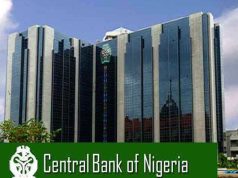Nigerian bank customers are embracing digital banking solutions at an unprecedented pace, as evidenced by the staggering N225.6 billion paid in e-business charges in the first nine months of 2023. This represents a remarkable 32.3% year-on-year increase from N170.46 billion paid in the same period last year. This surge in e-business charges reflects the growing popularity of electronic payment channels such as mobile applications, USSD, ATMs, agency banking, internet banking, and PoS terminals.
The financial statements of leading commercial banks for the 9M’23 period reveal that account maintenance fees also experienced a significant increase, jumping 22% year-on-year to N101.38 billion compared to N82.81 billion in 9M’22. This upward trend in fees and commissions contributed to a total income of N557 billion for the banks during the period, representing a 17% year-on-year growth from N457.35 billion in 9M’22.

The banks reaping the rewards of this digital banking boom include Guaranty Trust Bank (N30.9 billion), Access Bank (N70.35 billion), Zenith Bank (N75.7 billion), United Bank for Africa, UBA (N33.5 billion), Stanbic IBTC (N3.2 billion), Fidelity Bank (N994 million), Unity Bank (N2.2 billion), Wema Bank (N5.2 billion), and Sterling Bank (N3.6 billion).
Analysts at Cowry Asset Management Plc attribute this surge in digital banking to the country’s robust economic growth, which has opened up new opportunities for increased banking activity and lending. They further emphasize the transformative impact of digital banking solutions, noting that increased adoption will continue to drive efficiency gains and convenient services for both customers and banks.
As Nigeria embraces the digital revolution, the banking sector is poised for continued growth and expansion. The adoption of electronic payment platforms and digital banking solutions will undoubtedly shape the future of the Nigerian banking landscape.




















